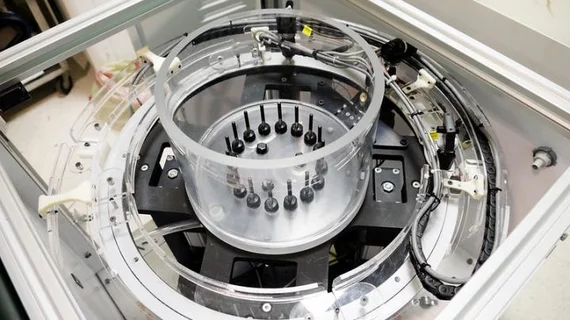$3M grant for multimodality breast imaging tool to slash unnecessary biopsies
A large proportion of people who undergo a breast biopsy don’t have cancer. And thanks to a new grant, researchers are working on an imaging-based approach to reduce unnecessary procedures.
The National Cancer Institute awarded the $3 million prize to engineers at Dartmouth University to develop a multimodal breast imaging platform that combines microwave and MRI, known as sMMRI.
Investigators from the Hanover, New Hampshire-based university are also joining forces with their peers at Dartmouth-Hitchcock Medical Center and a team from Quality Electrodynamics—a subsidiary of Canon Inc.—on the first-of-its-kind project.
"An MRI by itself produces very high-resolution images, but weak specificity, meaning it's hard to determine if a suspicious area is malignant; while microwave imaging provides images with remarkable specificity, but suffers from poor resolution," Paul Meaney, an investigator on the project and engineering professor at Dartmouth, said in an announcement. "So, the idea is to combine the two methods to get a more accurate rendering of the tumor or lesion zone, but it's very difficult to do."
What’s more, the new breast imaging modality would also cut out the need for gadolinium. The contrast agent is used to enhance MRI visualization, but has been shown to linger in the body long after an exam, which has resulted in new class warnings from the U.S. Food and Drug Administration.
As of now, the group has only tested their machine in proof-of-concept experiments. These have gone well, but they plan to build upon their success and complete clinical trials during the five-year grant period.
"The whole objective is to improve women's health," Meaney added. "I don't think we're going to cure everything, but if we can improve things, that would be great."

